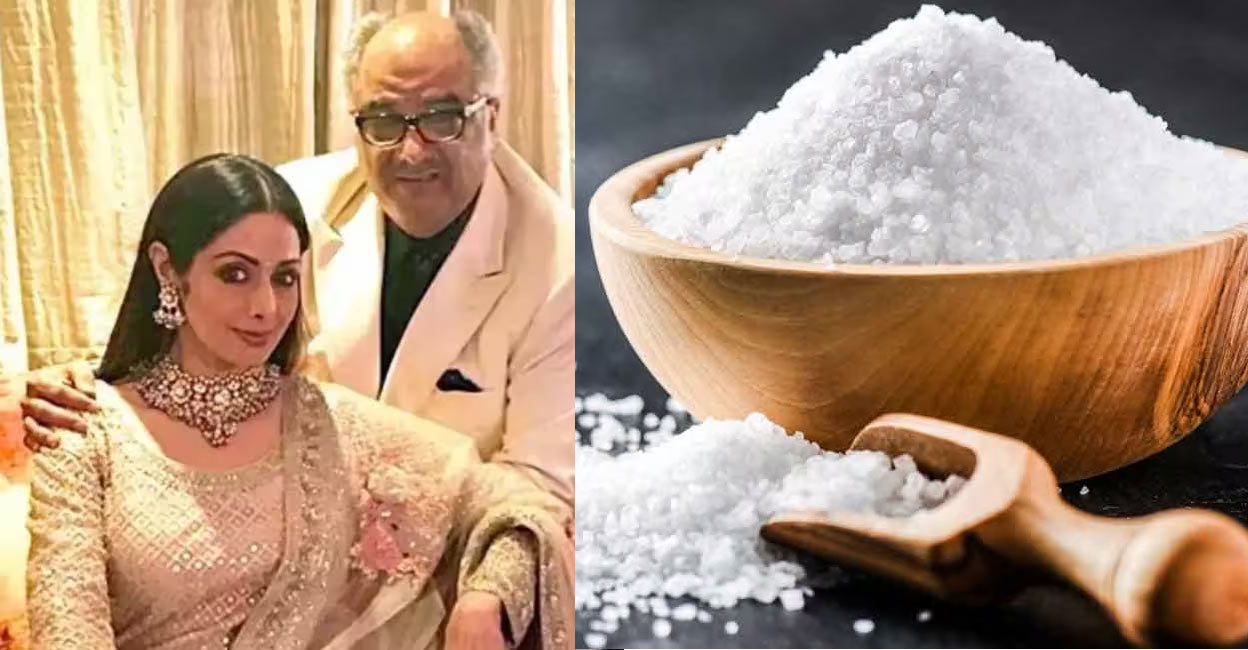In recent revelations, it has been suggested in an article in India Today that the late Bollywood icon Sridevi followed a low-salt diet as part of her beauty regimen. This raises questions about the nature of this diet, why individuals opt for it, and the cautionary advice from nutrition experts.
Understanding the Low-Salt Diet: As the name implies, a low-salt diet restricts the intake of sodium commonly found in table salt. People often turn to this diet with the belief that it can contribute to weight loss and a more toned appearance. Sodium is known to cause water retention, and by reducing salt intake, individuals aim to achieve a leaner and more sculpted look.
Why Do People Choose a Low-Salt Diet?
Many people choose a low-salt diet because they are attracted to the idea of quickly improving their appearance. Individuals may believe that shedding excess water weight enhances their physical appearance, particularly in the realm of the entertainment industry where appearances hold significant value.
Nutritionist’s Warning: While the desire to look good is understandable, nutritionists and health experts caution against the indiscriminate adoption of a low-salt diet. Sodium plays a crucial role in maintaining the body's fluid balance, nerve function, and muscle contractions. Drastic reduction of sodium levels can lead to electrolyte imbalances, negatively impacting vital bodily functions.
Health Risks Associated with Low-Salt Diets:
1. Electrolyte Imbalance: Sodium is an essential electrolyte, and a significant reduction can disrupt the balance, affecting heart health and nerve function.
2. Kidney Function: Insufficient sodium may compromise kidney function, leading to complications for those with pre-existing kidney conditions.
3. Dehydration: Low-salt diets can contribute to dehydration, affecting overall well-being and potentially causing dizziness and fatigue.
4. Blood Pressure Fluctuations: Paradoxically, extreme sodium reduction can lead to fluctuations in blood pressure, impacting cardiovascular health.
5. Nutrient Absorption: Sodium is vital for nutrient absorption in the digestive system, and its deficiency may hinder the body's ability to extract essential nutrients from food.
Balanced Approaches to Health and Beauty: Health experts emphasize the importance of balanced and sustainable approaches to both health and beauty. Instead of drastic dietary measures, they advocate for well-rounded nutrition, regular physical activity, and adequate hydration. They argue that achieving and maintaining good health contributes to a natural and sustainable enhancement of one's physical appearance.
Striking a Balance for Long-Term Well-Being: Sridevi's alleged adherence to a low-salt diet sheds light on the sometimes extreme measures individuals take to achieve certain aesthetic goals. However, it also serves as a reminder that health should be the priority. Nutritionists stress the significance of balanced lifestyles, cautioning against quick-fix solutions that may pose risks to overall well-being. In the pursuit of beauty, finding sustainable and health-conscious practices ensures long-term benefits and a positive impact on both appearance and vitality

 In the pursuit of beauty, finding sustainable and health-conscious practices ensures long-term benefits and a positive impact on both appearance and vitality.
In the pursuit of beauty, finding sustainable and health-conscious practices ensures long-term benefits and a positive impact on both appearance and vitality.










.jpeg)




.jpeg)

.jpg)













